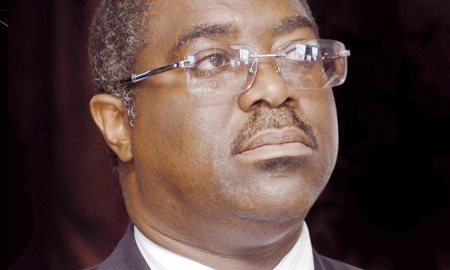History has changed. Lagos is no longer a paradise for tax fugitives. Gone are the days when the state was completely dependent on raising capital from the federal coffers. The Nigerian government has succeeded in establishing a new way of thinking and generated unprecedented tax receipts. Thanks to the former executive governor of Lagos State (1999-2007) Asiwaju Bola Ahmed Tinubu, since 1999 the state has started to manage its revenues. Reviews have studied the amount of domestic revenue attainable and resulted in a raft of revised tax administration laws.
In 2005, a changed mindset with regards to the fiscal policy of Nigeria was established. The figures from 1999 through to today emphasise this development. In 1999, Lagos State generated domestic revenues of N600 million monthly (nearly $3.8 million); in 2005 the figures reached N3.4 billion monthly and last year it was more than N16.5 billion per month. This spectacular growth has taken place with the same legislation and tax customs of previous years. Merely the political will and social awareness have changed.
The state government began to collect taxes via the Lagos Internal Revenue Service (LIRS) and started to train qualified personnel in the public and private sector. “Corporate organisations knew about the tax laws but the tax administration process under the then Board of Internal Revenue did not really focus on them. Or, it did not enforce the payment of taxes,” says Babatunde Fowler, CEO of LIRS. The informal sector further complicated matters because its members did not know the system and no records of their activities existed. “But we now have relationships with all these different sectors and we have tried to educate them by, for example, explaining the laws and giving out a lot of fliers,” says Mr Fowler.
Initially, information was spread and afterwards access to tax policies was created. LIRS initiated information flow for business people and 34 mini stations were set up in Lagos to facilitate the taxation process. “We go directly into companies so they do not have to neglect their day-to-day business,” says Mr Fowler. “We found that the typical trader does not want to leave their shop in case they miss a big customer. So we moved the stations close to them.” However, in order to enhance transparency, citizens cannot pay taxes in the new agencies, but must do so by filling out a simple form at a bank.
In the past couple of years financial penalties have also been introduced and consequently the process of tax payments has really started to take off.
LIRS goes beyond educating the public and easing access to tax payments. The CEO says that their main goal has been to let everyone who is not registered in the tax system know that they will be caught. “We have started to persecute tax evaders,” says Mr Fowler. “The penalties are steep and there are also prison sentences.” To guarantee success, LIRS cooperates with various institutions, such as the traffic department. “Over the past couple of years we have been able to generate about N20 billion yearly from tax audits of organisations that have not paid the correct amount of taxes,” the CEO adds.
Since the beginning, attempts have been made to convince the population that it is in their own best interest to pay taxes. “A major reason why people would not pay taxes is they were not sure what it was being used for. We have made people in Lagos understand that 65 per cent of the revenue that is spent in Lagos comes from taxes,” says Mr Fowler, who adds that LIRS is proud to work under the protection of the law to establish a better Lagos and Nigeria.

0 COMMENTS